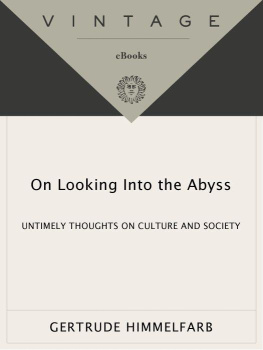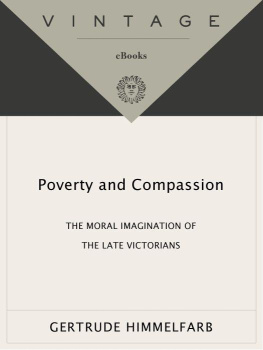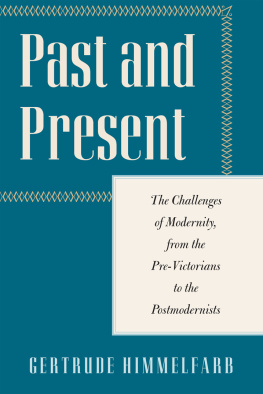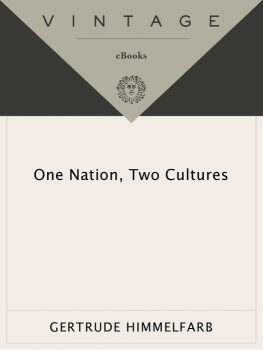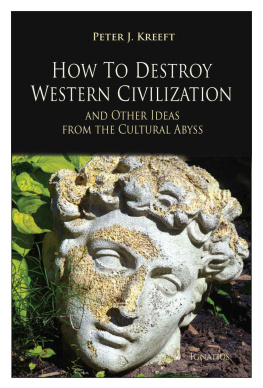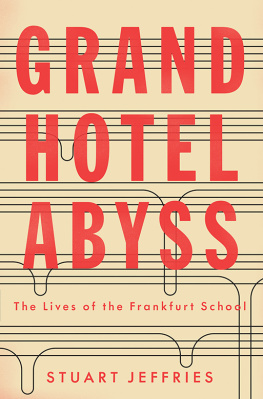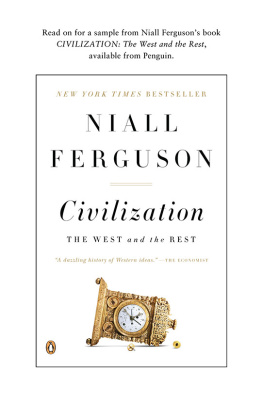GERTRUDE HIMMELFARB
ON LOOKING INTO THE ABYSS
Gertrude Himmelfarb is Professor Emeritus of History at the Graduate School of the City University of New York. She is a fellow of the British Academy, the Royal Historical Society, the American Philosophical Society, and the American Academy of Arts and Sciences. Her previous books include Poverty and Compassion: The Moral Imagination of the Late Victorians, The New History and the Old, Marriage and Morals Among the Victorians, The Idea of Poverty: England in the Early Industrial Age, On Liberty and Liberalism: The Case of John Stuart Mill, Victorian Minds (nominated for a National Book Award), Darwin and the Darwinian Revolution, and Lord Acton: A Study in Conscience and Politics.
ALSO BY GERTRUDE HIMMELFARB
Poverty and Compassion: The Moral Imagination of the Late Victorians (1991)
The New History and the Old (1987)
Marriage and Morals Among the Victorians (1986)
The Idea of Poverty: England in the Early Industrial Age (1984)
On Liberty and Liberalism: The Case of John Stuart Mill (1974)
Victorian Minds (1968)
Darwin and the Darwinian Revolution (1959)
Lord Acton: A Study in Conscience and Politics (1952)
EDITOR OF
John Stuart Mill, On Liberty (1974)
John Stuart Mill, Essays on Politics and Culture (1962)
T. R. Malthus, On Population (1960)
Lord Acton, Essays on Freedom and Power (1948)
Copyright 1994 by Gertrude Himmelfarb
All rights reserved under International and Pan-American Copyright Conventions. Published in the United States by Vintage Books, a division of Random House, Inc., New York, and simultaneously in Canada by Random House of Canada Limited, Toronto. Originally published in hardcover by Alfred A. Knopf, Inc., New York, in 1994.
Essays in this volume were originally published in the following:
The American Scholar: On Looking into the Abyss (as The Abyss Revisited) and Liberty: One Very Simple Principle?
Commentary: Of Heroes, Villains, and Valets.
The National Interest: The Dark and Bloody Crossroads Where Nationalism and Religion Meet. The New York Times Book Review: Where Have
All the Footnotes Gone?
The Times Literary Supplement: Postmodernist History (as Telling It As You Like It).
The Library of Congress has cataloged the Knopf edition as follows:
Himmelfarb, Gertrude.
On looking into the Abyss: untimely thoughts on culture and society / by Gertrude Himmelfarb.
p. cm.
eISBN: 978-0-307-77308-1
1. United StatesIntellectual life20th century. 2. United StatesCivilization1970 I. Title.
E162.12.H56 1994
973.9dc20 93-4928
v3.1
To the Memory of Lionel Trilling
Contents
I
On Looking into the Abyss
II
Of Heroes, Villains, and Valets
III
From Marx to Hegel
IV
Liberty: One Very Simple Principle?
V
The Dark and Bloody Crossroads Where Nationalism and Religion Meet
VI
Where Have All the Footnotes Gone?
VII
Postmodernist History
Introduction
Only after completing this book did I realize how prominently Lionel Trilling figures in it. The title of the book (derived from the lead essay) is a direct quotation from him. The title of another of the essays is an adaptation from him. And most of the other essays cite him at crucial points of the argument. In dedicating this book to him, I am discharging an intellectual and personal debt that is long overdue.
I was never a student of Trillings, but I was an admirer and a friend. (It was one of his many virtues that his friendships knew no limits of age.) In recent years I find myself returning to his writings more and more, not so much for inspiration as for solace. The inspiration came many years ago when I learned to appreciate a mode of thought that I now recognizeI did not know this at the timeto be uniquely his: a seriousness about ideas that was not academic (defying both the language of academia and the compartmentalization of disciplines); a seriousness about public affairs that went beyond (or stopped short of) politics in the ordinary sense; a moral gravitas that was surely unseemly when I was younger but that may be more appropriate at my present age (and in the present time).
If I now find solace in Trilling, it is because he was able to resist the insidious ideological and political fashions of his time without the coarsening of mind that often comes with doing battle, and also without the timidity and equivocation that retreats from battle in an excess of fastidiousness. What I have come to realize more recently is that he was not only remarkably clearheaded about the threats to intellectual integrity and political liberty in his day; he was also remarkably prescient in recognizing the first signs of the new perils that have replaced the old.
In an earlier book, Poverty and Compassion, I adopted Trillings much quoted phrase the moral imagination for the subtitle, and the passage in which that expression appears for the books epigraph. Rereading that passage today, I am impressed once again by its wisdom. Nearly half a century ago, when the welfare state was young and democratic socialism was not yet the oxymoron it has become, Trilling foresaw the fallacy in what then seemed to be an enlightened, humane, and compassionate social policy. Almost in passing, in the course of discussing quite another subject, he made an observation that is of the greatest pertinence today:
Some paradox of our natures leads us, when once we have made our fellow men the objects of our enlightened interest, to go on to make them the objects of our pity, then of our wisdom, ultimately of our coercion. It is to prevent this corruption, the most ironic and tragic that man knows, that we stand in need of the moral realism which is the product of the free play of the moral imagination.
In the present book, I have had occasion again and again to draw upon the sense of moral realism that is so much a part of Trillings moral imagination: in the lead essay, where his image of the abyss invites us to reflect on the intellectual arrogance and spiritual impoverishment of some of the latest tendencies in literary criticism, philosophy, and history; in the essay on heroes, in which he is quoted as exposing the fatal weakness of structuralism long before it had even acquired that name; in the essay on nationalism, where the literary critic lectures the historian on the fallacies of the long view, in which murder and torture seem not so terrible as they compose themselves into a meaningful pattern.
If Lionel Trillings presence is so conspicuous in this book, so is the memory of the Holocaust. This too was not anticipated or consciously intended by me. Yet it now seems to me perfectly natural and proper. In almost every essay, the Holocaust stands as a rebuke to historians, philosophers, and literary critics who, in their zeal for one or another of the intellectual fashions of our time, belittle or demean one of the greatest tragedies of all time. Historians who think it the highest calling of their profession to resurrect the daily life of ordinary people can find little evidence in the daily life of ordinary Germans of the overwhelming fact of lifeand of deathfor millions of Jews; those who look for the long-term processes and impersonal structures in history tend to explain this short-term event in such a way as to explain it away; and those seeking to deconstruct the history of the Holocaust as they deconstruct all of history come perilously close to the revisionists who deny the reality of the Holocaust.

